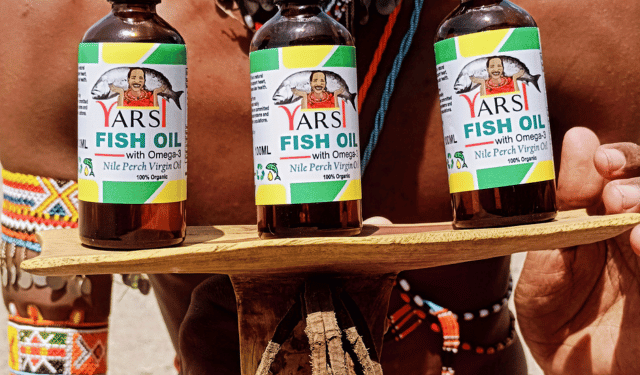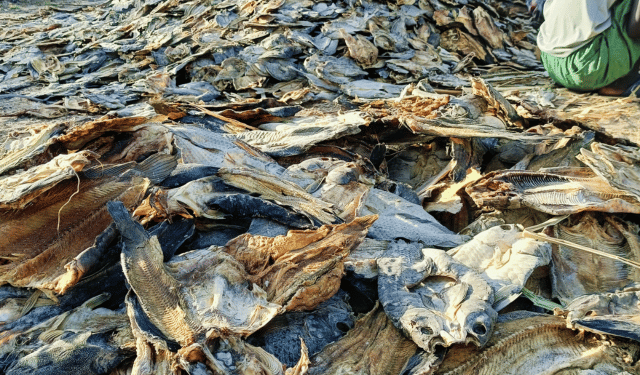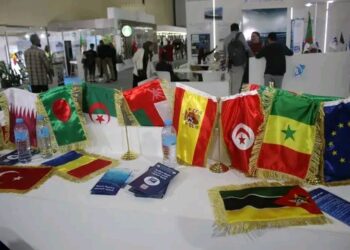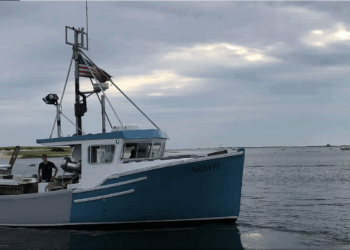In the heart of Kenya’s arid north, where dust swirls and opportunity often feels scarce, one woman is turning what many overlook—fish waste—into a thriving enterprise. Daniela Nairita, the visionary behind Yarsi, is pioneering a bold, blue economy venture by transforming discarded fish by-products from Lake Turkana into high-quality, eco-friendly fish oil.
From Waste to Wonder: The Birth of Yarsi
It all began in 2023 with a radical idea rooted in sustainability and social impact. “Living in an ASAL region, we were surrounded by natural wealth, but our communities suffered from unemployment and environmental degradation,” Daniela recounts. Recognizing that tons of fish waste from the lake were being discarded or improperly managed, she saw an opportunity not just for business, but for transformation.
Yarsi was born to close this loop, addressing ecological challenges while opening economic doors. Today, her company stands as a leading force in sustainable fish waste recycling in Kenya, supplying products to the food, cosmetics, and animal feed sectors. But the road to success wasn’t without obstacles.
“Consistent sourcing, lack of infrastructure, and convincing people that fish waste could be valuable, these were major hurdles,” she says. It took innovation, relentless community engagement, and patient consumer education to make the idea stick.
Anchored in the Blue Economy and Agroecology
Yarsi’s model is a textbook example of the blue economy in action, utilizing aquatic resources responsibly while creating jobs and preserving biodiversity. “We’re not just reducing environmental degradation,” Daniela emphasizes, “we’re building a circular economy that respects the environment while enhancing food security and community livelihoods.”
From an agroecological perspective, Yarsi recycles fish waste into usable, safe products, cutting dependence on chemical additives and external inputs. The initiative is revitalizing local economies, empowering fishers, and instilling a new sense of stewardship among communities around the lake.
Clean Tech in the Desert: The Yarsi Way
At the core of Yarsi’s operations lies a fusion of smart technology and sustainability. From solar drying systems and cold-press extraction to natural filtration techniques that forgo harmful chemicals, every process is designed to preserve both the product’s purity and the planet’s health.
Crucially, no part of the fish is wasted, bones, skin, and offcuts are repurposed into fish leather, protein powders, and more. It’s a masterclass in circular innovation, and it’s happening in one of Kenya’s most underserved regions.
Scaling Up for a Sustainable Future
Daniela’s vision is ambitious. She aims to expand sourcing networks, invest in scalable technologies, and penetrate regional and global markets with diversified products like omega-3 supplements and fish-based protein powders.
Yet, scaling Yarsi isn’t without its barriers. “Policy gaps around fish waste recycling, limited infrastructure, and tough market entry conditions all pose risks,” she notes. Accessing funding in a remote area also remains a challenge. But the global tide is shifting. With rising demand for sustainable products and a growing emphasis on health, wellness, and environmental responsibility, Daniela sees fertile ground for Yarsi’s expansion.
Advice to Africa’s Next Blue Economy Innovators
For young African entrepreneurs eyeing the blue economy, Daniela offers this wisdom: “Start with what you have and where you are. Find a local problem and innovate around it with sustainability at the heart. Engage your community, embrace technology, and push for supportive policies. Be resilient and think globally, but always serve your people first.”
Lake Turkana: A Harsh but Hopeful Frontier
Lake Turkana, Africa’s largest desert lake, is both a resource and a testbed for innovation. “Its extreme conditions have shaped our methods,” Daniela explains. With unreliable infrastructure and searing heat, the Yarsi team had to adapt, developing low-energy, eco-friendly systems tailored to their environment.
But more than a setting, Turkana is Yarsi’s lifeline. “The health of the lake is the foundation of our sustainability,” she says. “Protecting it means protecting our future.”









